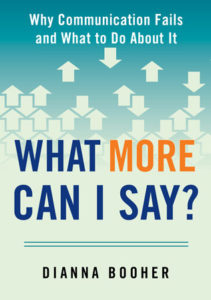


A few years ago, I called my mother during a break at the trade show floor. “Do they have Dad’s test results back yet?”
“Yes. They do. The doctor said there’s a blockage in all four arteries—really in five places. He said most people have only four arteries to the heart, but some people have an abnormal, extra one. Like your dad. And that’s the ONLY one that’s not blocked. He’s got 98 percent blockage in all of the other four. The extra artery is the only one that’s keeping him alive.”
I could feel my own heart pounding at her words. “So they’re going ahead with surgery next week?”
“They’re going to do it NOW—as soon as they can schedule an operating room. The doctor just left to see if he can shuffle some patients around and get him into surgery immediately.” I headed for the hospital.
The doctor didn’t not get him into surgery until 7:00 the next morning. By that time, the surgery waiting room was filled with more than 30 friends, plus family members waiting for . . . whatever.
Several hours later, the surgeon came out to say that he thought my dad would be fine. At middle afternoon, the waiting room was still filled with friends waiting for the next update on Dad.
But that was not the case for everyone having heart surgery that day.
Besides my dad’s group of visitors, only a few individuals sat scattered around the waiting room. One person sat in the north corner. Another waited in the west corner—again alone. My heart went out to them, knowing how much comfort my mom and we kids felt from having others waiting there with us for any news.
That’s the thing. Pain can be halved when shared.
As Ralph Waldo Emerson observed, “The only way to have a friend is to be one.”
My parents have spent a lifetime depositing their concern in other people’s lives, so when they needed to make a withdrawal, friends surrounded them. There’s nothing like a medical crisis to focus your attention on relationships—their presence or absence.
A friend of mine made the same observation about her own parents’ circle of friends after they’d had a car accident. Before they were checked out and released from the Emergency Room, friends calling from all over the city jammed the hospital switchboard for news of their condition.
Friends show up during the dark, difficult days. Others’ reactions to our crises and concerns etch memories and generate gratitude that can last for a lifetime.
In their eighties, my paternal grandparents could no longer take care of themselves at home. They decided to move into a nursing home because my grandmother, beginning to suffer from Alzheimer’s, needed around-the-clock care. At first, my parents encouraged them to consider a nursing home closer to where the rest of the family lived so we all could visit more often and keep an eye on things.
But my grandfather wouldn’t hear of it. Their friendships built throughout a lifetime meant too much to leave. Their friends who were still able to drive came to visit them every day at the nursing home for almost two years—until their death a few months apart. Those priceless friendships kept them in that small town, . . . no matter what.
By contrast, I attended a funeral of another relative some years ago. She and her husband, too, had lived in a small town for years. Both were in good health, and seemed content and self-sufficient in their own world without others. When the woman was diagnosed with breast cancer, no friends came to visit, no one offered to bring food, no one showed up to pray with her. At her memorial service, including family members, there were 10 people.
Such trying times and situations focus us on the depth of our own relationships. As a yardstick, consider the following starter list of differentiators:
Communicating your friendship takes more than words! The time for cultivating friendships is before you need them.
In a difficult position with a friend and need to talk about it? Learn methods of connecting again in What More Can I Say: Why Communication Fails and What to Do About It.
